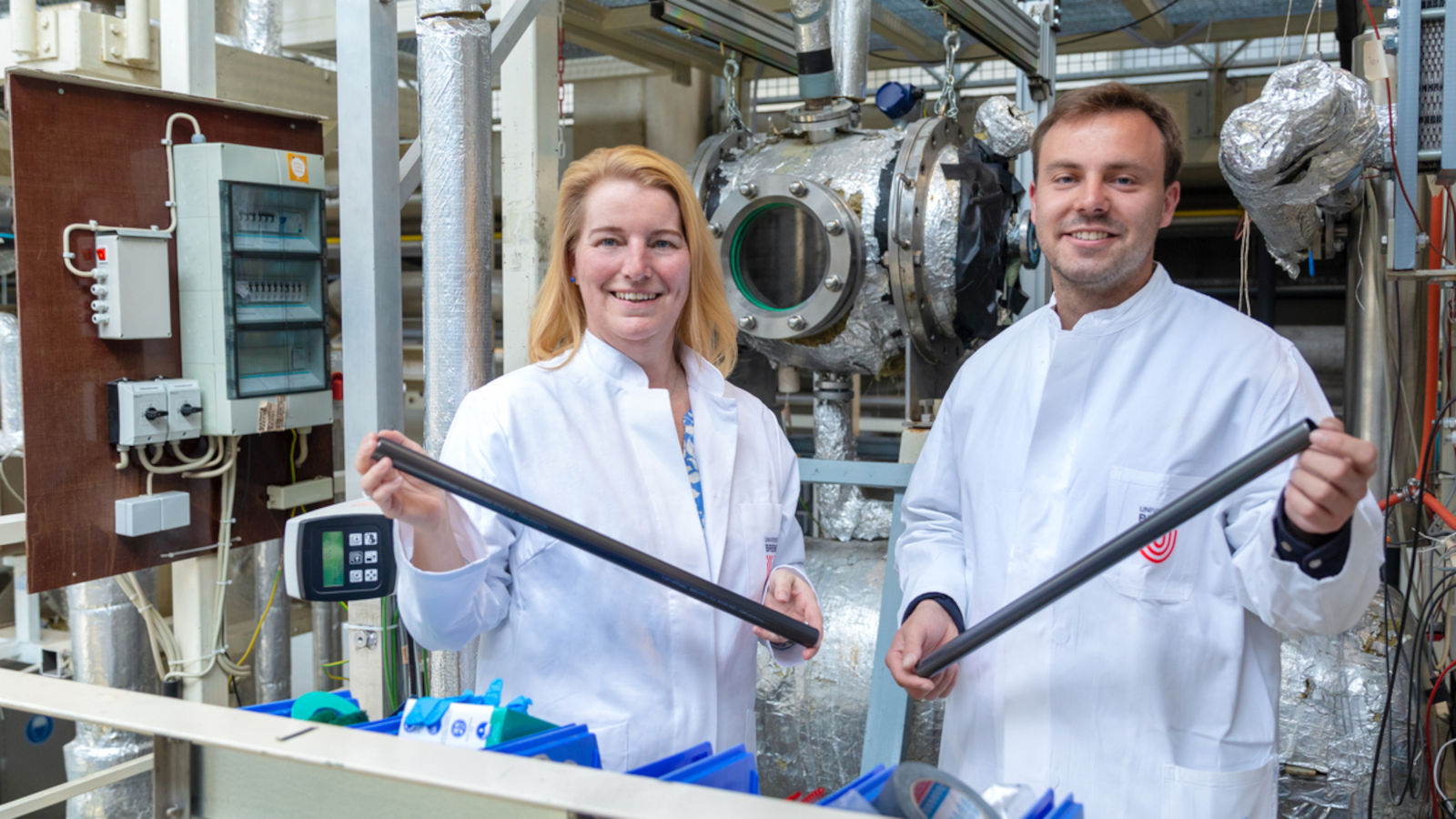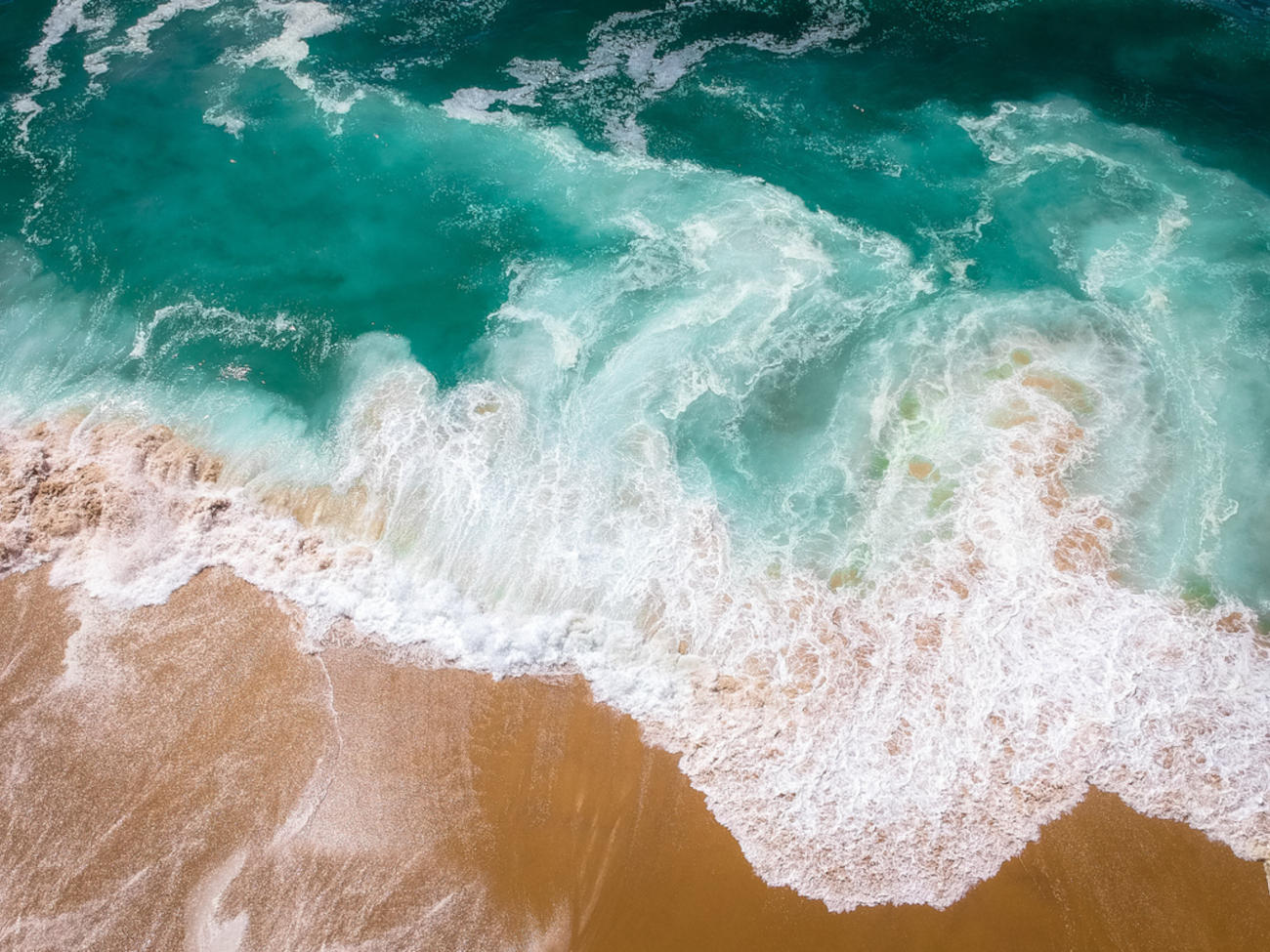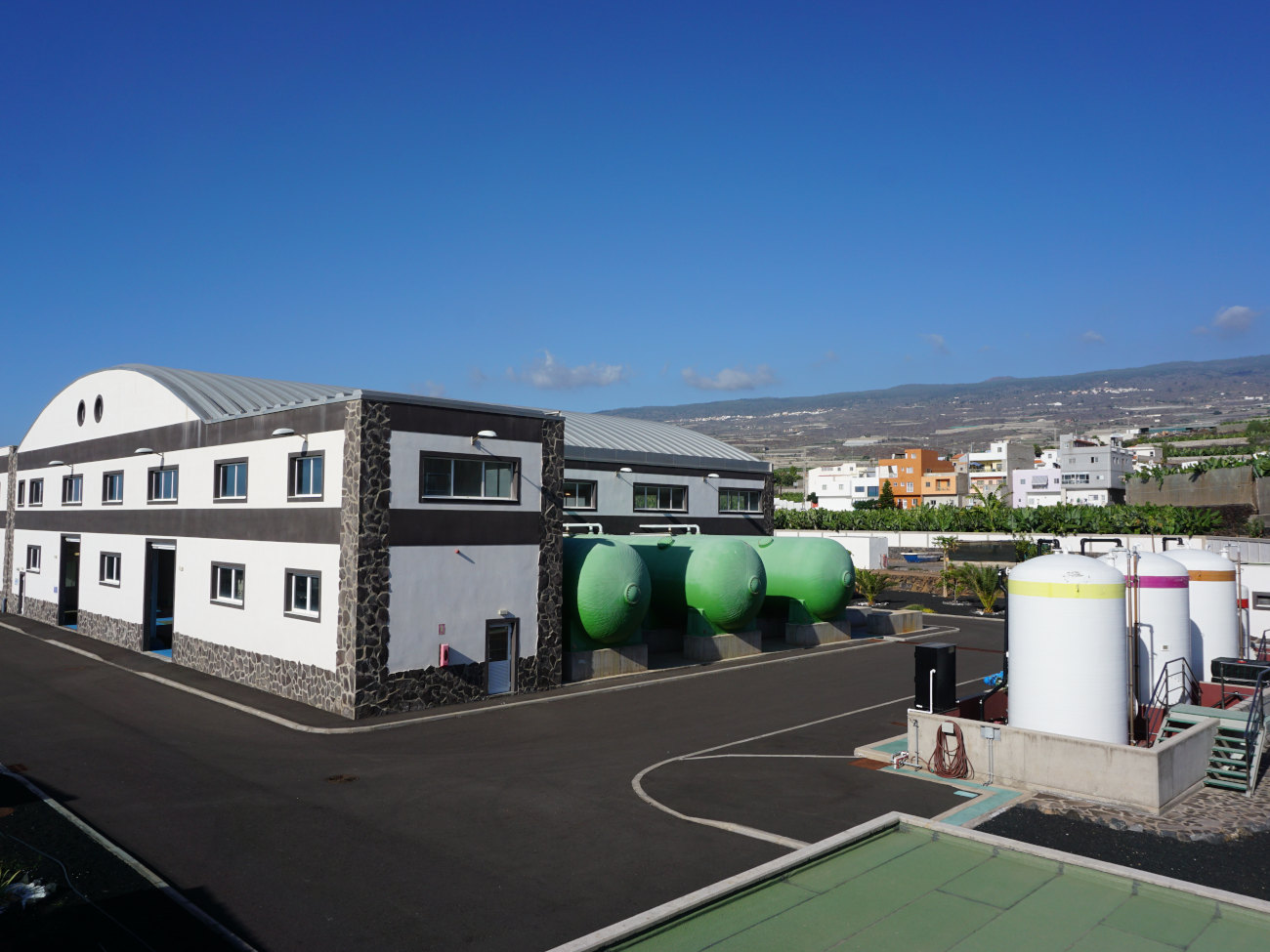
© Matej Meza / Universität Bremen
Sea4Value: Valuable Raw Materials from the Ocean
Lithium, magnesium, scandium, vanadium, gallium, boron, indium, molybdenum, rubidium: valuable raw materials that are mostly extracted in mines outside Europe.
A major European project is now taking a new approach – it aims to make it possible to extract these raw materials from seawater. The Department of Engineering Thermodynamics within the Faculty of Production Engineering at the University of Bremen is playing an important role in this project.
Lithium is often referred to as “white gold.” Without this material, for example, nothing would work in the tech world. Lithium is important for batteries, among other things, and has long been used in smartphones and laptops. But also in the field of electromobility, whose accelerated global introduction is virtually “crying out” for powerful batteries. “Other valuable metals and minerals are also very rare, but immensely important for current applications and products as well as their further development,” says Dr.-Ing. Heike Glade. She heads the “Evaporator Technology and Seawater Desalination” research group in the Department of Engineering Thermodynamics in the Faculty of Production Engineering. “The problem for European companies is that these raw materials do not usually come from Europe. So the continent has a supply risk and is dependent on foreign markets.”
That’s about to change – thanks to a major European project funded by the European Union’s Horizon 2020 research and innovation program. Sea4Value is the title of the four-year project, which also involves production engineers from the University of Bremen. The title already gives it away: “Seawater is also full of minerals and metals, many of which are valuable, rare, or even critical in terms of supply,” explains M. Sc. Jan Imholze, a research assistant within the research group. “We want to develop technologies with which we can extract these components from seawater.”

© nvphoto / Adobe Stock
Facilities for this do not yet exist - the goal is to build them. “The minerals and metals are only dissolved in seawater in very low concentrations. They must therefore first be strongly concentrated in seawater before they can be economically extracted by selective separation processes,” says Heike Glade. In seawater desalination plants, which have been successfully producing fresh water worldwide for many years, the seawater is already concentrated during desalination. Such plants can also be found in Spain, for example, where there is a shortage of fresh water.
Raw Materials from Seawater Brine
The approach now is to use the seawater brine from desalination plants as a new source for the sustainable extraction of raw materials. This is to be achieved by developing and upscaling novel technologies. Most desalination plants use what is known as reverse osmosis technology. This involves passing seawater under pressure past a dense membrane. The membrane only allows water through that ends up being of drinking water quality. “This also produces a concentrated salt solution. This is currently still considered waste and discharged back into the sea, but it contains high concentrations of minerals and metals,” explains Jan Imholze. Sea4Value aims to recover these metals and minerals from the brine.
For this purpose, the European project is developing a modular process for multi-element recovery. It aims to be the first industrially viable process of its kind that both extracts nine raw materials and provides fresh water for consumption in a new sustainable way. “The goal is also to create new business opportunities for desalination plant operators while minimizing the environmental footprint,” says Heike Glade.
16 Research Institutes and Industrial Partners Involved
Sixteen research institutes and industrial partners are cooperating in the project, which is being funded with a total of around 7 million euros until 2024. They come from Spain, Germany, Italy, Belgium, Ukraine, the Netherlands, Finland, and Switzerland. The task of the engineering scientists at the University of Bremen is to develop a new type of evaporator with polymer-based heat-conducting tubes for the further concentration of seawater.
However, plastics are very poor heat conductors. The major challenge is in creating thermally conductive and functional plastic-based tubes for the evaporator. “Composites – that is, composite materials – made of plastic and a thermally conductive filler are being researched for evaporators: corrosion-resistant and economically viable,” says Jan Imholze. This is exactly what matters at Sea4Value, because salt water is extremely corrosive and attacks expensive metallic materials in an evaporator.

© Projekt Sea4Value
Around 15 years ago, Dr. Heike Glade conducted her first research into alternative materials for seawater desalination in a project with the Fraunhofer Institute for Manufacturing Technology and Advanced Materials (IFAM) in Bremen. Word of the Bremen engineer’s expertise spread among experts. “We were asked whether we could develop an innovative evaporator with adapted polymer-based materials for raw material recovery from seawater brine,” says Heike Glade.
Evaporator with Polymer Composites for the Concentration of Brine
The experts at the University of Bremen are able to do just that. They are now researching a mixture of polypropylene with graphite – lightweight, cost-effective, corrosion-resistant, and thermally conductive. “Our evaporator will be used to further concentrate the brine. Downstream processes being developed by our project partners can then extract the valuable raw materials,” says Jan Imholze.
In the first 30 months of Sea4Value, concentration, crystallization, and separation technologies for nine minerals and metals will be developed in the laboratories. In the final 18 months of the project, a mobile laboratory will then be designed and installed in two operating seawater desalination plants. According to Heike Glade, “this will involve validating the technical feasibility at two different locations: in the Mediterranean Sea in Denia, Spain, and in the Atlantic Ocean in Fonsalía on the Spanish Canary Island of Tenerife.”
Click here to learn more about the Department of Engineering Thermodynamics.